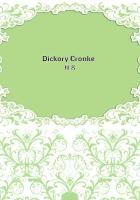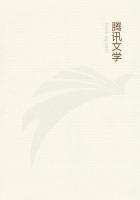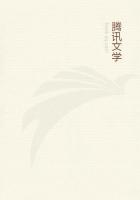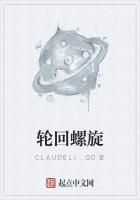"Dearest Cadmus," said she, "thou hast been the truest son that ever mother had, and faithful to the very last.Who else would have borne with my infirmities as thou hast! It is owing to thy care, thou tenderest child, that my grave was not dug long years ago, in some valley, or on some hillside, that lies far, far behind us.It is enough.Thou shalt wander no more on this hopeless search.But, when thou hast laid thy mother in the earth, then go, my son, to Delphi, and inquire of the oracle what thou shalt do next.""O mother, mother," cried Cadmus, "couldst thou but have seen my sister before this hour!""It matters little now," answered Telephassa, and there was a smile upon her face."I go now to the better world, and, sooner or later, shall find my daughter there."I will not sadden you, my little hearers, with telling how Telephassa died and was buried, but will only say, that her dying smile grew brighter, instead of vanishing from her dead face; so that Cadmus left convinced that, at her very first step into the better world, she had caught Europa in her arms.
He planted some flowers on his mother's grave, and left them to grow there, and make the place beautiful, when he should be far away.
After performing this last sorrowful duty, he set forth alone, and took the road towards the famous oracle of Delphi, as Telephassa had advised him.On his way thither, he still inquired of most people whom he met whether they had seen Europa; for, to say the truth, Cadmus had grown so accustomed to ask the question, that it came to his lips as readily as a remark about the weather.He received various answers.Some told him one thing, and some another.Among the rest, a mariner affirmed, that, many years before, in a distant country, he had heard a rumor about a white bull, which came swimming across the sea with a child on his back, dressed up in flowers that were blighted by the sea water.He did not know what had become of the child or the bull; and Cadmus suspected, indeed, by a queer twinkle in the mariner's eyes, that he was putting a joke upon him, and had never really heard anything about the matter.
Poor Cadmus found it more wearisome to travel alone than to bear all his dear mother's weight, while she had kept him company.His heart, you will understand, was now so heavy that it seemed impossible, sometimes, to carry it any farther.But his limbs were strong and active, and well accustomed to exercise.He walked swiftly along, thinking of King Agenor and Queen Telephassa, and his brothers, and the friendly Thasus, all of whom he had left behind him, at one point of his pilgrimage or another, and never expected to see them any more.
Full of these remembrances, he came within sight of a lofty mountain, which the people thereabouts told him was called Parnassus.On the slope of Mount Parnassus was the famous Delphi, whither Cadmus was going.
This Delphi was supposed to be the very midmost spot of the whole world.The place of the oracle was a certain cavity in the mountain side, over which, when Cadmus came thither, he found a rude bower of branches.It reminded him of those which he had helped to build for Phoenix and Cilix, and afterwards for Thasus.In later times, when multitudes of people came from great distances to put questions to the oracle, a spacious temple of marble was erected over the spot.But in the days of Cadmus, as I have told you, there was only this rustic bower, with its abundance of green foliage, and a tuft of shrubbery, that ran wild over the mysterious hole in the hillside.
When Cadmus had thrust a passage through the tangled boughs, and made his way into the bower, he did not at first discern the half-hidden cavity.But soon he felt a cold stream of air rushing out of it, with so much force that it shook the ringlets on his cheek.Pulling away the shrubbery which clustered over the hole, he bent forward, and spoke in a distinct but reverential tone, as if addressing some unseen personage inside of the mountain.
"Sacred oracle of Delphi," said he, "whither shall I go next in quest of my dear sister Europa?"There was at first a deep silence, and then a rushing sound, or a noise like a long sigh, proceeding out of the interior of the earth.This cavity, you must know, was looked upon as a sort of fountain of truth, which sometimes gushed out in audible words;although, for the most part, these words were such a riddle that they might just as well have staid at the bottom of the hole.But Cadmus was more fortunate than many others who went to Delphi in search of truth.By and by, the rushing noise began to sound like articulate language.It repeated, over and over again, the following sentence, which, after all, was so like the vague whistle of a blast of air, that Cadmus really did not quite know whether it meant anything or not:
"Seek her no more! Seek her no more! Seek her no more!""What, then, shall I do?" asked Cadmus.
For, ever since he was a child, you know, it had been the great object of his life to find his sister.From the very hour that he left following the butterfly in the meadow, near his father's palace, he had done his best to follow Europa, over land and sea.And now, if he must give up the search, he seemed to have no more business in the world.
But again the sighing gust of air grew into something like a hoarse voice.
"Follow the cow!" it said."Follow the cow! Follow the cow!"And when these words had been repeated until Cadmus was tired of hearing them (especially as he could not imagine what cow it was, or why he was to follow her), the gusty hole gave vent to another sentence.
"Where the stray cow lies down, there is your home."These words were pronounced but a single time, and died away into a whisper before Cadmus was fully satisfied that he had caught the meaning.He put other questions, but received no answer; only the gust of wind sighed continually out of the cavity, and blew the withered leaves rustling along the ground before it.















